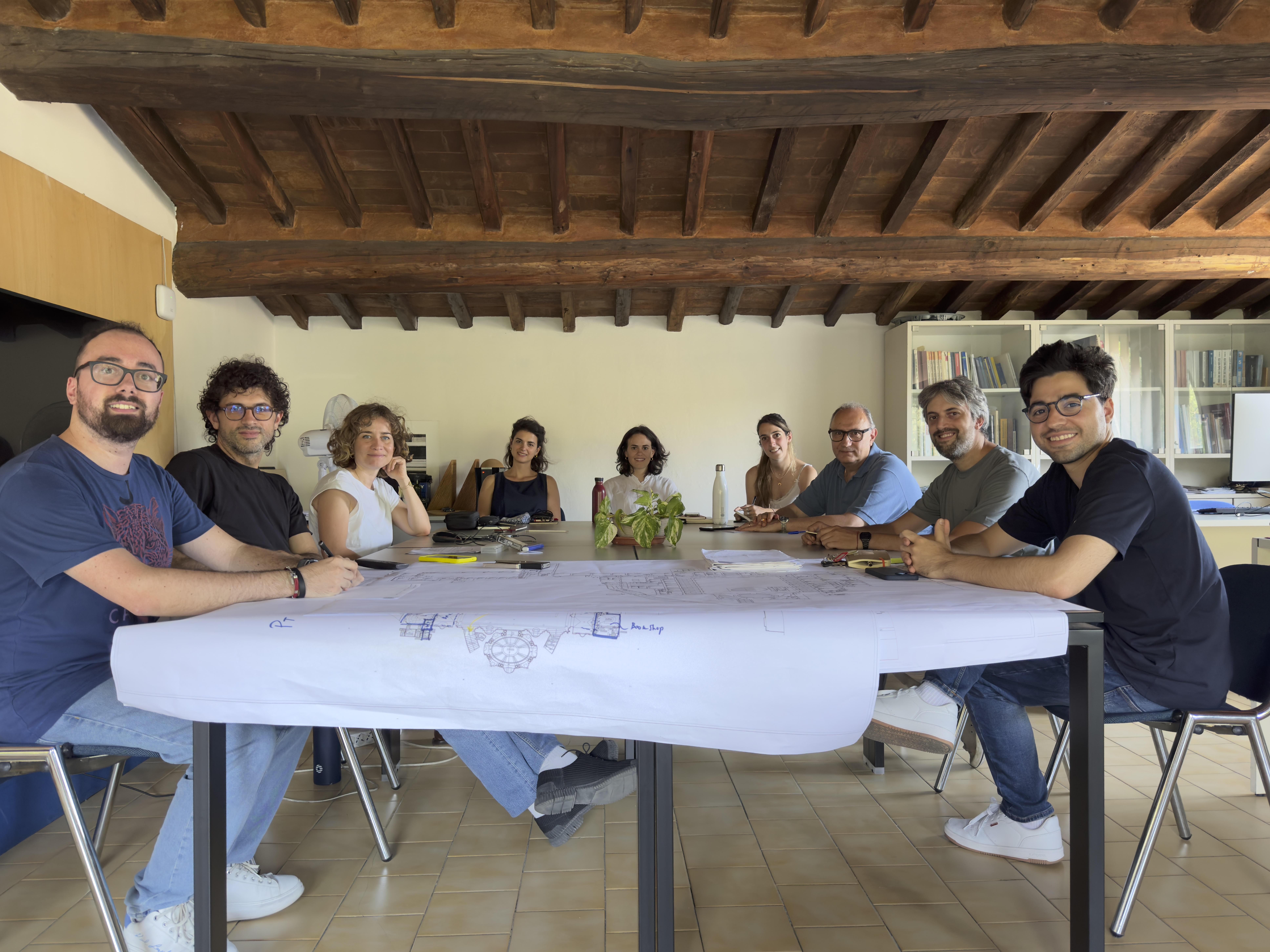Florence Accessibility Lab (FAL)
Scientific coordinator ITA
Antonio Lauria
Department of Architecture
Location
Palazzo Vegni
Via San Niccolò, 93 – Florence
Research unit members
DIDA - Department of Architecture
Francesco Alberti, Gianluca Belli, Stefano Bertocci, Maria De Santis, David Fanfani, Maria Rita Gisotti, Antonio Lauria, Luca Marzi, Pietro Matracchi, Tessa Matteini, Gabriele Paolinelli, Rosa Romano, Simone Secchi, Luigi Vessella, Leonardo Zaffi, Matteo Zambelli
DIEF - Department of Industrial Engineering
Benedetto Allotta, Monica Carfagni, Rocco Furferi, Lapo Governi
DSPS - Department of Political and Social Sciences
Ivana Acocella, Marco Bontempi, Brunella Casalini, Leonardo Chiesi, Paolo Costa, Alessandro Pratesi
DISEI - Department of Economics and Management
Luca Bagnoli, Mario Biggeri
FORLILPSI - Department of Education, Languages, Intercultures, Literatures and Psychology
Francesco De Maria, Giovanna Del Gobbo, Giulia Vettori
DSG - Department of Legal Sciences
Adelina Adinolfi, Monica Parodi
Advisors
Lucia Bigozzi, Fanny Di Cara, Mauro Lombardi, Claudia Mezzapesa, Pierangelo Mori, Stefan von Prodzinski, Iginio Rossi
Collaborators
Maddalena Branchi, Lorenzo Calamai, Alejandro Caputo Mier, Gregorio Goti, Eletta Naldi, Mirko Romagnoli
1. FOUNDING DOCUMENT
Florence Accessibility Lab ENG
2. AGREEMENTS
Memorandum of understanding with the Italian Ministry of Cultural Heritage and Tourism
Cooperation agreement with the Region of Tuscany on Accessibility
3. INITIATIVES
People_Places_Architecture book series ENG - Book series website
4. RECENT DOCUMENTS
Lauria, L. and Ndreca, A. (2025). Rethinking Accessibility as a Cultural Generative Ecosystem. Urban Science 9(11): 478. DOI
About FAL
Florence Accessibility Lab (FAL) – Accessibility to Cultural Heritage and Human Development – is an interdepartmental Research Unit of the University of Florence.
It was established in 2013 on the initiative of Antonio Lauria, after more than twenty years of studies and research on environmental accessibility and social inclusion. It currently involves researchers from six departments of the University of Florence.
The cultural vision inspiring FAL places the person at the center of habitat transformation processes, highlighting the need for these processes to be guided by an understanding of socioeconomic dynamics and by a sense of care for common goods. In this perspective, the great paradigm of accessibility recognizes Human Development, as defined by the United Nations Development Programme (UNDP), as its horizon and its natural ethical, social, and economic fulfillment.
Within the field of accessibility to cultural heritage, FAL focuses its activity on the following scenarios:
- Landscape
- Inner and marginal areas
- Urban and extra-urban mobility
- Tourism
- Cultural districts
- Relationship spaces, public and collective-use buildings
- Archaeological sites and parks
- Playgrounds
- Housing and domestic adaptation
- Everyday objects.
To carry out its research activity, FAL adopts a plurality of people-centered methodologies, starting from the requirement-performance theory.
Attention to methodological aspects has led to the definition of an innovative strategic planning tool: the Accessibility Plan, initially conceived for urban spaces and public buildings and subsequently extended also to cultural heritage assets.
FAL is very active in the area of the University’s Third Mission, orienting its research activities toward concrete applications and operational impacts in local contexts.
In this framework, FAL has carried out the research projects REACT (Regenerating the cultural landscapes of inner areas from a people-centered perspective. Historic villages and rural territories of the Casentino as a laboratory of creativity and innovation) and RESTART (Holistic regeneration and conservation of archaeological sites in the inner areas of Tuscany as a driver for local development), which address the development of inner territories through an integrated and participatory approach, based on the valorization of cultural resources and local communities.
A particularly significant experience is the ADA Project (Domestic Adaptation for Personal Autonomy), which has influenced regional policies on disability (Resolutions of the Regional Council of Tuscany no. 1446/2018 and no. 1055/2021). Selected by the University of Florence for the VQR (Research Quality Evaluation) 2015-2019 in the Third Mission section, the ADA Project received an “Excellent” evaluation; it also received the “Good Practice” recognition from the International Design for All Foundation and won the “Design for All Foundation Award 2018” in the category Spaces, products and services already in use.
FAL is also strongly committed to promoting a culture of accessibility also through innovative training projects (workshops, seminars, summer schools, master’s, etc.) and through intense and systematic dissemination activity.
Among its most important initiatives is the People_Places_Architectureeditorial series (Florence University Press), which also includes reworkings of doctoral theses. Each volume is available in a version accessible to people with visual impairments, thanks to textual descriptions of images, diagrams, and charts.
Since its foundation, FAL has hosted Italian and foreign scholars, doctoral students and graduates, united by an interest in accessibility and social inclusion.
Today, FAL is a reference point for public, private, and Third Sector bodies in research, education and consultancy on environmental accessibility for Human Development at a local level.
FAL has been the reference model for the creation of similar labs at several Italian universities (Brescia, Naples Federico II, Turin Polytechnic, Venice Ca’ Foscari, Cagliari, Reggio Calabria Mediterranea, etc.).
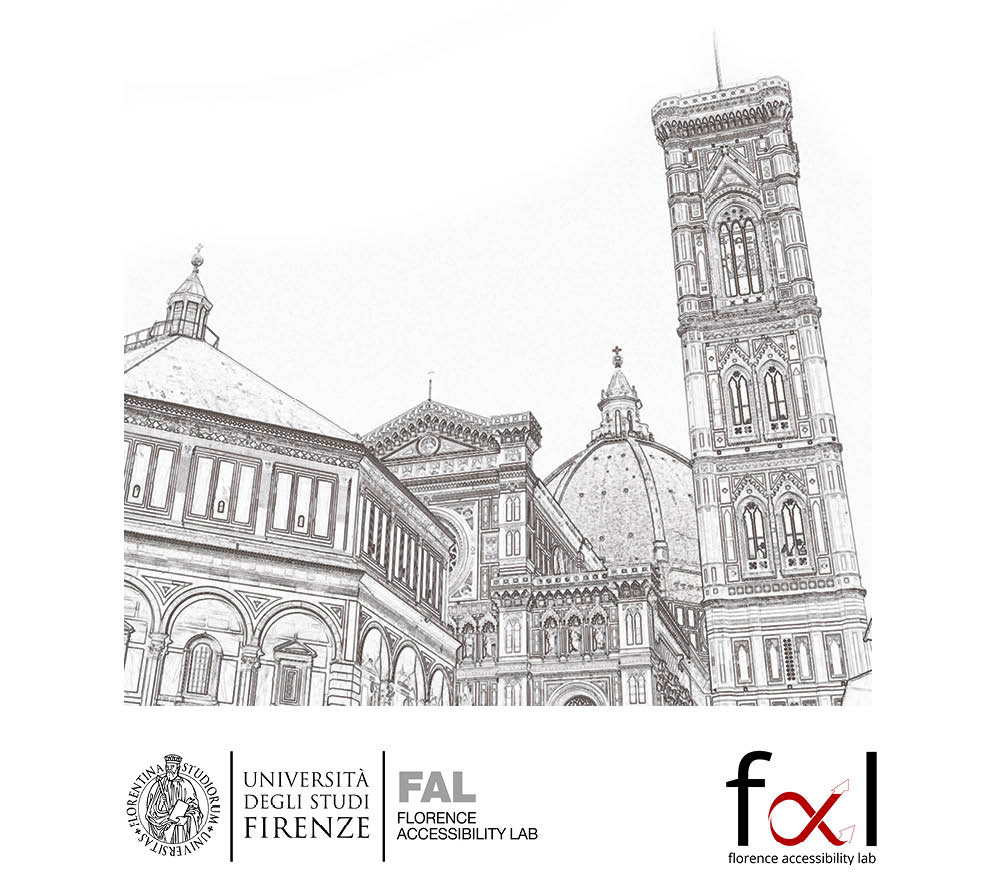
Objectives
The main objectives of Florence Accessibility Lab can be summarized as:
- Define, consolidate, and promote a design culture that considers accessibility a great collective resource for the promotion of human rights such as inclusion, freedom, autonomy, participation, knowledge, equal opportunities, health.
- Make local communities more dynamic, safe, and cohesive, enhancing tangible and intangible cultural heritage, thanks to the activism of communities.
- Design and implement methodologies, solutions, technologies, and tools to improve the accessibility of places, assets, and services.
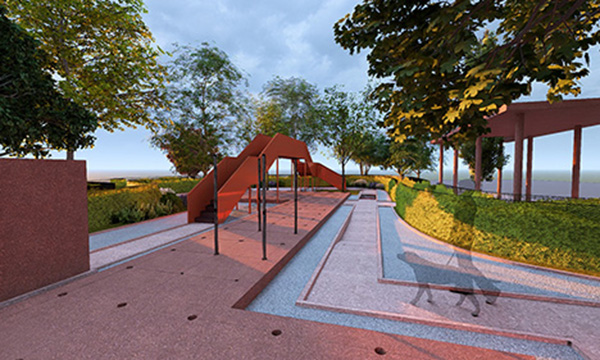 |
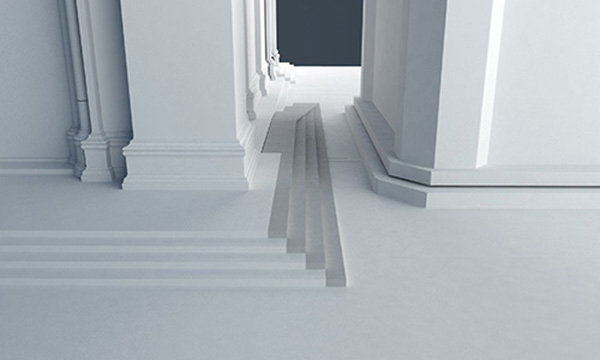 |
Recent research projects
Linee Guida per la progettazione di un’area per l’orientamento e la mobilità con cane guida per persone con disabilità visiva nel Parco della Scuola Nazionale Cani Guida per Ciechi di Scandicci
Regione Toscana, Scuola Nazionale Cani Guida per Ciechi, Toscana Accessibile
Research group: Prof. Lauria (PI, DIDA, FAL), Prof. Rocco Furferi (DIEF, FAL), Prof. Giovanni Pancani (DIDA), Mirko Romagnoli, Lorenzo Calamai e Chiara Giuliacci.
Ricerca per l'elaborazione dei Piani per l'Accessibilità degli spazi museali delle Gallerie degli Uffizi e di Palazzo Pitti
Gallerie degli Uffizi, Firenze
Research group: Prof. Antonio Lauria (PI, DIDA, FAL), Prof. Gianluca Belli (DIDA, FAL), Prof. Luca Marzi (DIDA, FAL), Prof. Pietro Matracchi (DIDA, FAL), Prof. Simone Secchi (DIDA, FAL), Luigi Vessella (DIDA, FAL), Eletta Naldi, Mirko Romagnoli.
2022-2025
RESTART | Regeneration and Holistic Conservation of Archaeological Sites in Disadvantaged Areas of Tuscany as a factor of local development
PNRR, PE5_CHANGES; Spoke 8 (Sustainability and Resilience of Tangible Cultural Heritage)
Research group: Prof. Fulvio Cervini (SAGAS, FAL), Prof. Antonio Lauria (DIDA, FAL), Prof. Pietro Matracchi (DIDA, FAL), Prof. Michele Nucciotti (SAGAS), Sara Casoli (SAGAS), Luigi Vessella (DIDA, FAL).
https://www.restart-toscana.unifi.it/
REACT | Regenerating Cultural Landscapes of inner areas in a people-centered perspective. Historical villages and rural areas of the Casentino region as an ideas incubator of creativity and innovation
Bando di Ateneo per il finanziamento di Progetti di ricerca competitivi della durata di 30 mesi nell'ambito delle tematiche del PNR 2021-2027
Research group: Prof. Antonio Lauria (PI, DIDA, FAL), Prof. Giovanni Belletti (RUO, DISEI), Prof. Monica Carfagni (RUO, DIEF, FAL), Prof.ssa Giovanna Del Gobbo (RUO, FORLILPSI), Prof.ssa Rosa Romano (Coordinamento Tecnico, DIDA, FAL), Prof. Mario Biggeri (DISEI, FAL), Prof. Pietro Causarano (FORLILPSI), Prof. David Fanfani (DIDA, FAL), Prof. Rocco Furferi (DIEF), Prof. Maria Rita Gisotti (DIDA, FAL), Prof. Lapo Governi (DIEF, FAL), Prof. Andrea Marescotti (DISEI), Prof. Pietro Matracchi (DIDA, FAL), Prof.ssa Tessa Matteini (DIDA, FAL), Prof. Pier Angelo Mori (DISEI, FAL), Prof.ssa Daria Sarti (DISEI), Prof.ssa Inmaculata Solis Garcia (FORLILPSI), Giulia Biagi, Andrea Braghiroli, Maddalena Branchi, Matteo Mengoni, Claudia Mezzapesa, Eletta Naldi.
Boboli per noi. Il Piano per l'Accessibilità del Giardino di Boboli e del Giardino delle Scuderie Reali, Firenze
Regione Toscana (FCS), Gallerie degli Uffizi
Research group: Prof. Antonio Lauria (PI, DIDA, FAL), Prof. Gianluca Belli (DIDA, FAL), Prof. Luca Marzi (DIDA, FAL), Prof. Pietro Matracchi (DIDA, FAL), Prof.ssa Tessa Matteini (DIDA, FAL), Prof.ssa Emanuela Morelli (DIDA).
Culture 04/2021_Develop Community Resources through the Valorization of the Natural and Cultural Heritage - Aid 12069
Agenzia Italiana di Cooperazione allo Sviluppo (AICS), sede regionale di Tirana
Research group: Prof. Antonio Lauria (PI, DIDA, FAL), Prof. Francesco Alberti (DIDA, FAL), Prof. Pietro Matracchi (DIDA, FAL), prof. Gabriele Paolinelli (DIDA, FAL).
Inclusione all'Opera. Il Piano per l’Accessibilità del complesso monumentale dell’Opera di Santa Maria del Fiore, Firenze
Regione Toscana
Research group: Prof. Antonio Lauria (PI, DIDA, FAL), Prof. Gianluca Belli (DIDA, FAL), Prof. Luca Marzi (DIDA, FAL); Prof. Pietro Matracchi (DIDA, FAL), Prof. Giorgio Verdiani.
Ricerca per la redazione del Piano per l'Accessibilità di Lecce
Comune di Lecce con Università del Salento, Dipartimento di Storia, Società e Studi sull'Uomo e Dipartimento di Ingegneria dell'Innovazione
Research group (DIDA): Prof. Antonio Lauria (PI, DIDA, FAL), Assegnisti di Ricerca.
The Diaspora as a Resource for the Knowledge, Preservation and Enhancement of the Lesser Known Cultural Sites in Albania
International Organisation for Migration (IOM)
Research group: Prof. Antonio Lauria (PI, DIDA, FAL), Prof. Leonardo Chiesi (DSPS, FAL), Prof. Pietro Matracchi (DIDA, FAL), Prof. Ugo Tonietti (DIDA).
La qualità acustica degli ambienti scolastici. Relazione tra percezione dei suoni e rendimento scolastico. Indagine finalizzata alla progettazione di un kit a supporto della correzione acustica delle aule
Fondazione Cassa di Risparmio di Firenze - Manifattura Maiano
Research group: Prof. Simone Secchi (PI, DIDA, FAL), Prof.ssa Lucia Bigozzi (FORLILPSI, FAL), Prof. Antonio Lauria (DIDA, FAL).
Contributo tecnico-scientifico e di ricerca per l’estensione del progetto ADA (Adattamento Domestico per l’Autonomia) all’intero territorio della Regione Toscana
Convenzione tra Dipartimento di Architettura e Regione Toscana (Consorzio Società della Salute Firenze Nord-Ovest)
Principal investigator: Prof. Antonio Lauria.
2015-2017
La valorizzazione degli spazi residuali in abbandono come opportunità per la città
inclusiva. Pocket Parks for all.
Progetti Strategici Ricerca di Base, 2014, Università degli Studi di Firenze
Principal investigator: Prof. Antonio Lauria (DIDA, FAL).
2015-2016
Contributo tecnico-scientifico e di ricerca per l'attività del Centro di Ricerca sull'Informazione e la Documentazione (CRID) della Regione Toscana
Convenzione tra Dipartimento di Architettura e Regione Toscana (Consorzio Società della Salute Firenze Nord-Ovest)
Principal investigator: Prof. Antonio Lauria (DIDA, FAL).
2013-2015
DISCIT | Making persons with disabilities full citizens
European Commission - 7th Framework Programme - 7FP-SHH-2012-2-CP
NOVA (Norway)
Scientific coordinator PIN S.c.r.l.: Prof. Mario Biggeri (DISEI, FAL).
2012-2013
Progetto T-VedO. Ricostruzione Tridimensionale per non Vedenti di Opere d’arte pittoriche
P.A.R. FAS REGIONE TOSCANA Linea di Azione 1.1.a.3.
Scientific coordinator: Prof. Monica Carfagni (DIEF, FAL).
2012-2013
Strumenti a supporto dei processi di valorizzazione e rigenerazione urbana delle aree ex ferroviarie di Borgo Verde e Borgo Nuovo a Pontassieve
RS Ricerca Dipartimento di Architettura dell’Università di Firenze, Comune di Pontassieve
Scientific coordinator: Prof. Leonardo Zaffi (DIDA, FAL).
Recent publications
Lauria, L. and Ndreca, A. (2025). Rethinking Accessibility as a Cultural Generative Ecosystem. Urban Science 9(11): 478. DOI
Lauria, A. (2025). La mia idea di accessibilità. Appunti per la costruzione di una mappa cognitiva. Urbanistica Informazioni, vol. 321, Special Issue "Il sistema dell’accessibilità: filiere della vitalità e del benessere", pp. 5-12. Available from the publisher
Vessella, L. and Casoli, S. (a cura di) (2025). RESTART. Paesaggi, memorie, comunità. Archeologia e rigenerazione nelle Aree interne della Toscana. Sesto Fiorentino (FI): All'Insegna del Giglio. Available from the publisher
Lauria, A. (a cura di) (2025). Il paesaggio culturale come risorsa per la rigenerazione delle aree interne italiane. La ricerca REACT_Casentino. Soveria Mannelli (CZ): Rubbettino. Available from the publisher DOI
Lauria, A., Belletti, G. and Del Gobbo, G. (a cura di) (2025). Scenari e proposte per il recupero e la valorizzazione del paesaggio culturale del Casentino. Le Linee guida REACT. Soveria Mannelli (CZ): Rubbettino. Available from the publisher DOI
Belletti, G., Del Gobbo, G., Lauria, A., Biagi, G., Branchi, M., Mengoni, M. and Naldi, E. (a cura di) (2025). La rigenerazione sostenibile del paesaggio culturale come leva di sviluppo comunitario e territoriale nelle aree interne: una Guida Strategica. Soveria Mannelli (CZ): Rubbettino. Available from the publisher DOI
Vessella, L., Lauria, A., Belli, G. and Romagnoli, M. (2024). Considerazioni intorno al progetto di valorizzazione dei luoghi di interesse culturale. L’esperienza del Piano per l’Accessibilità del complesso monumentale dell’Opera di Santa Maria del Fiore a Firenze. Restauro Archeologico, 32: 40-63. DOI
Lauria, A., Alberti, F., Matracchi, P. and Paolinelli, G. (2024). Enhancing cultural and natural heritage as a lever for the regeneration of rural areas. The village of Bënjë, Southern Albania, as a case study. Firenze: Firenze University Press. DOI
Lauria, A. (2023). Accessibilità. Elementi per la definizione di un campo di indagine. In Baratta, A.F.L., Conti, C., Tatano, V. (a cura di) Manifesto Lessicale per l’Accessibilità ambientale. 50 parole per progettare l’inclusione, pp. 11-25. Conegliano (TV): Anteferma Edizioni. DOI
Lauria, A. (2023). Riflessioni sulle strategie di progettazione universale. In De Santis, M., Marzi, L., Secchi, S., Setola, N. (a cura di). Specie di spazi. Promuovere il benessere psico-fisico attraverso il progetto, pp. 396-405. Conegliano (TV): Anteferma Edizioni. DOI
Vettori, G., Di Leonardo, L., Secchi, S., Astolfi, A. and Bigozzi, L. (2022). Primary school children’s verbal working memory performances in classrooms with different acoustic conditions. Cognitive Development ,64: 101256. DOI
Lauria, A. (2022). Regenerating villages in the inner areas through cultural and experiential tourism. Valori & Valutazioni, 30: 101-118. DOI
Lauria, A. and Vessella, L. (2021). Small Forgotten Places in the Heart of Cities. On the residuality of public spaces in historical context: Florence as a case study. Firenze: Firenze University Press. DOI
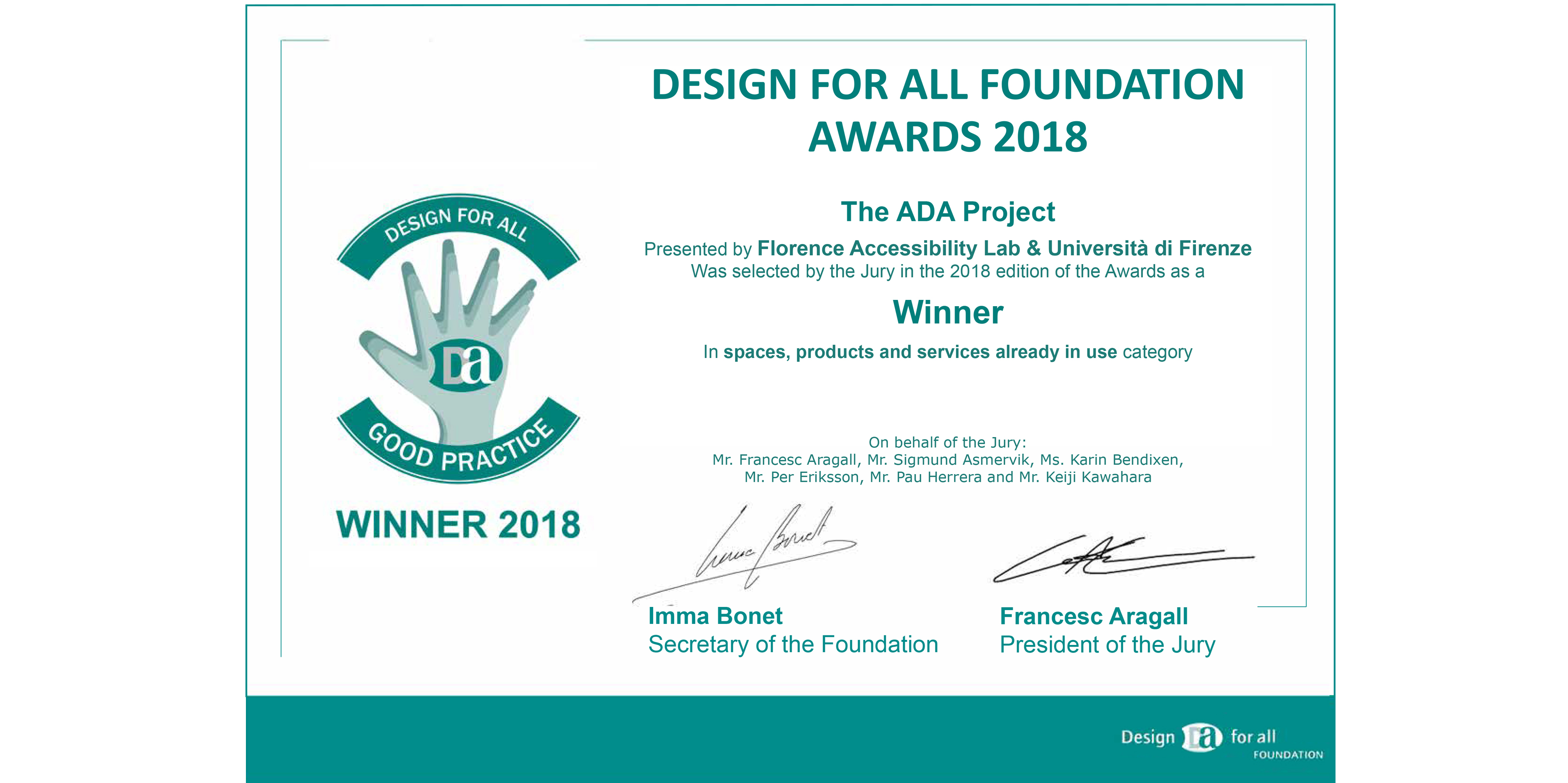
Last update
22.12.2025

